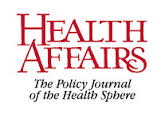Docs Dropping Medicare in Growing Numbers
More than 9500 doctors stopped accepting Medicare in 2012 – nearly three times as many who dropped out of the program just three years earlier.
In addition, the proportion of family doctors who accepted new Medicare patients that year fell from 83 percent in 2010 to 81 percent.
While most doctors who leave Medicare cite what they consider to be its inadequate payment rates, some do not want to adopt electronic health records and others feel that they can fare better financially without the additional staff needed to process Medicare claims.
While some Medicare patients choose to pay out of their own pocket rather than switch doctors, that is seldom an option for most of the low-income patients served by Pennsylvania’s safety-net hospitals.
Read more about the challenges Medicare faces in retaining enough doctors to serve the nation’s aging population and why more doctors are dropping out of the program in this Wall Street Journal article .
.





